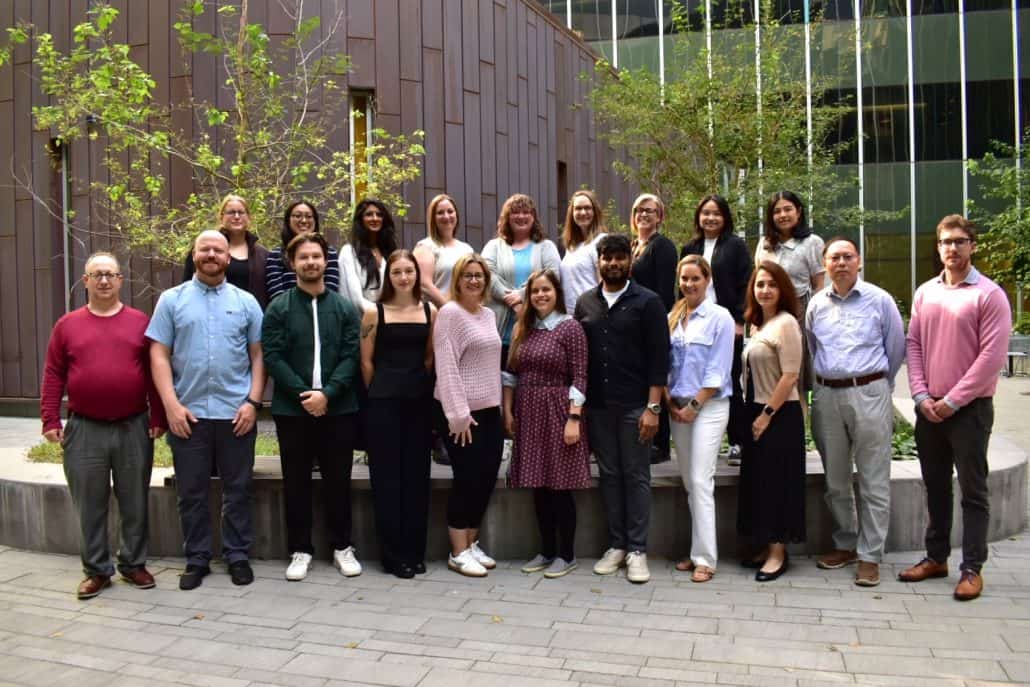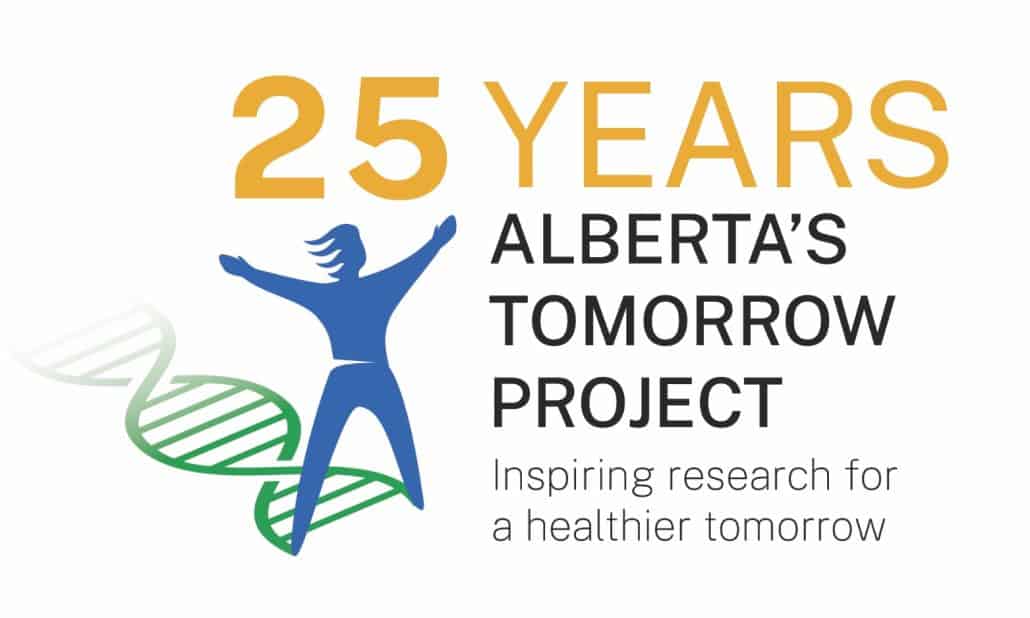Alberta’s Tomorrow Project collects information and insight to help prevent cancer, diagnose cases earlier and improve the quality of life of people living with cancer in Alberta and beyond.

We’ve seen tremendous advancements in cancer research and care. But what still needs to be better understood is why some people develop cancer and chronic disease and others don’t.
That is where Alberta’s Tomorrow Project (ATP) comes in. This longitudinal project aims to reveal what causes and what may prevent cancer and chronic diseases. ATP, celebrating its 25th anniversary this year, began recruiting participants in 2000, and now has over 55,000 people from across the province taking part. These Albertans have agreed to share personal data for use in research, specifically to provide information on their health and lifestyle over a 50-year timeframe, making ATP the largest health research study in Western Canada.
How is ATP data collected?
ATP participants complete surveys to provide insight into many aspects of their lives, such as mental health, smoking status, cancer screening, body measurements and family history. From these surveys, ATP has collected over one billion data points to support research, inform policies and improve cancer and chronic disease outcomes.
Over 30,000 of these participants have generously donated thousands of biological samples, including blood and urine, which make it possible to measure genetics and other unique health markers. With ATP’s fulsome data, and by linking to other health data, researchers can explore how lifestyle, genetics and environment influence the health of generations to come.
Last fall, ATP moved into its new home at the Arthur J.E. Child Comprehensive Cancer Centre in Calgary. It’s the perfect environment as it brings together medical experts, researchers and clinicians — all of whom could untap the potential of ATP’s data to find meaningful answers. ATP’s biobank holds more than one million samples.
What studies does ATP support?
ATP helps with a number of different health studies; most recently, it carried out a survey as part of the Lung Cancer Risk Factors Study. This research project is in partnership with the University of Calgary’s Evict Radon National Study team, headed by researcher Dr. Aaron Goodarzi. By joining forces, so much more can be learned about what puts Albertans at risk for lung cancer.
An upcoming study is the Diet and Physical Activity project. In late 2025, ATP, along with six CanPath (the largest nationwide population health study) regional cohorts, will administer the largest and most comprehensive diet and physician activity data collection in Canadian history. The data collected through this project will not only help uncover how diet and the food environment are linked but may also inform personalized prevention and treatments for individuals facing cancer, and answer questions about the impacts of diet and physical activity on health and well-being.
Ultimately, as a long-term collaborative study, ATP provides exceptional depth and breadth of detailed information to researchers around the world. The forward thinking of ATP will help shape the future of how we can be more proactive about our health and how we can provide better care. These efforts will lead to further progress: increased prevention, earlier detection and better treatment of cancer and chronic diseases.
To learn more, visit myatp.ca.


